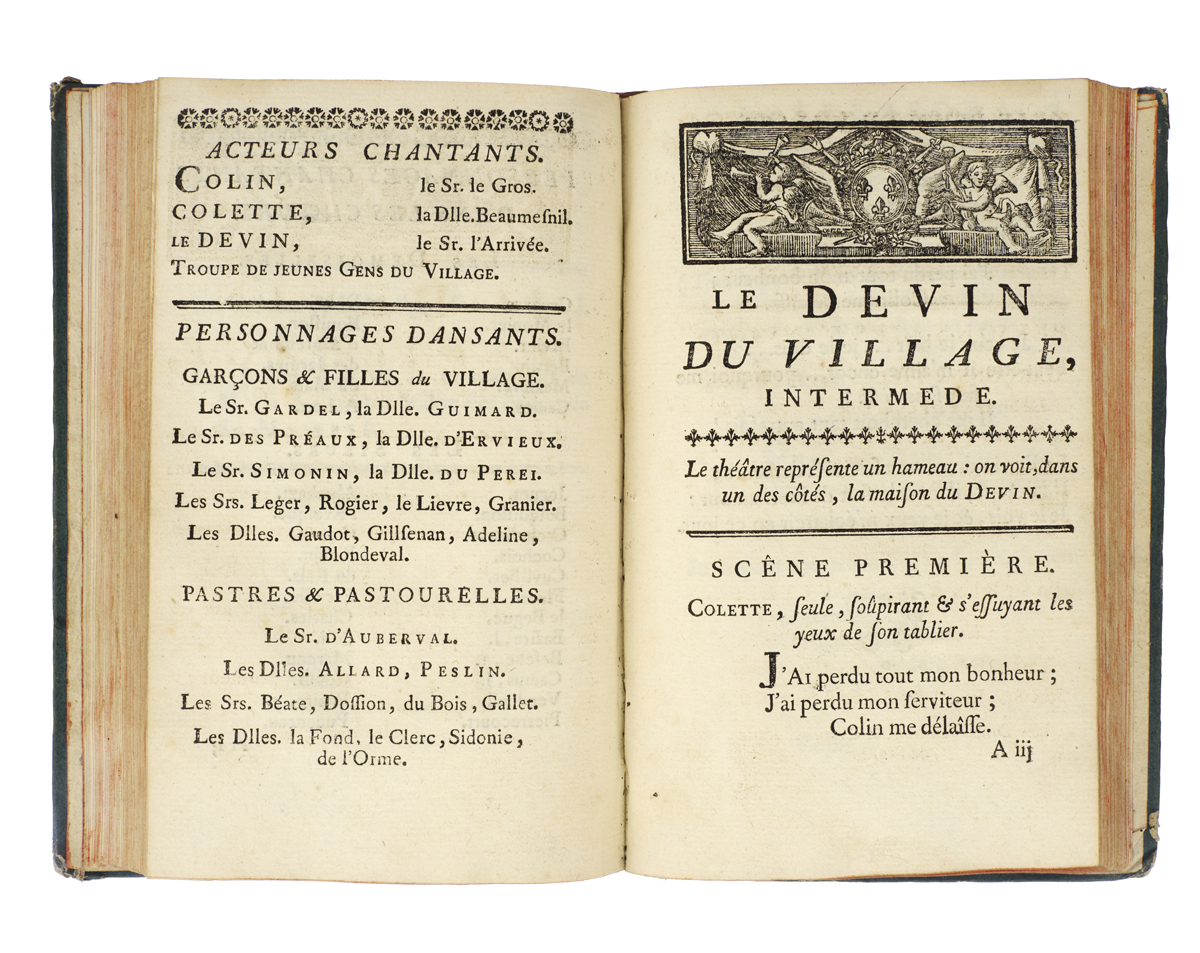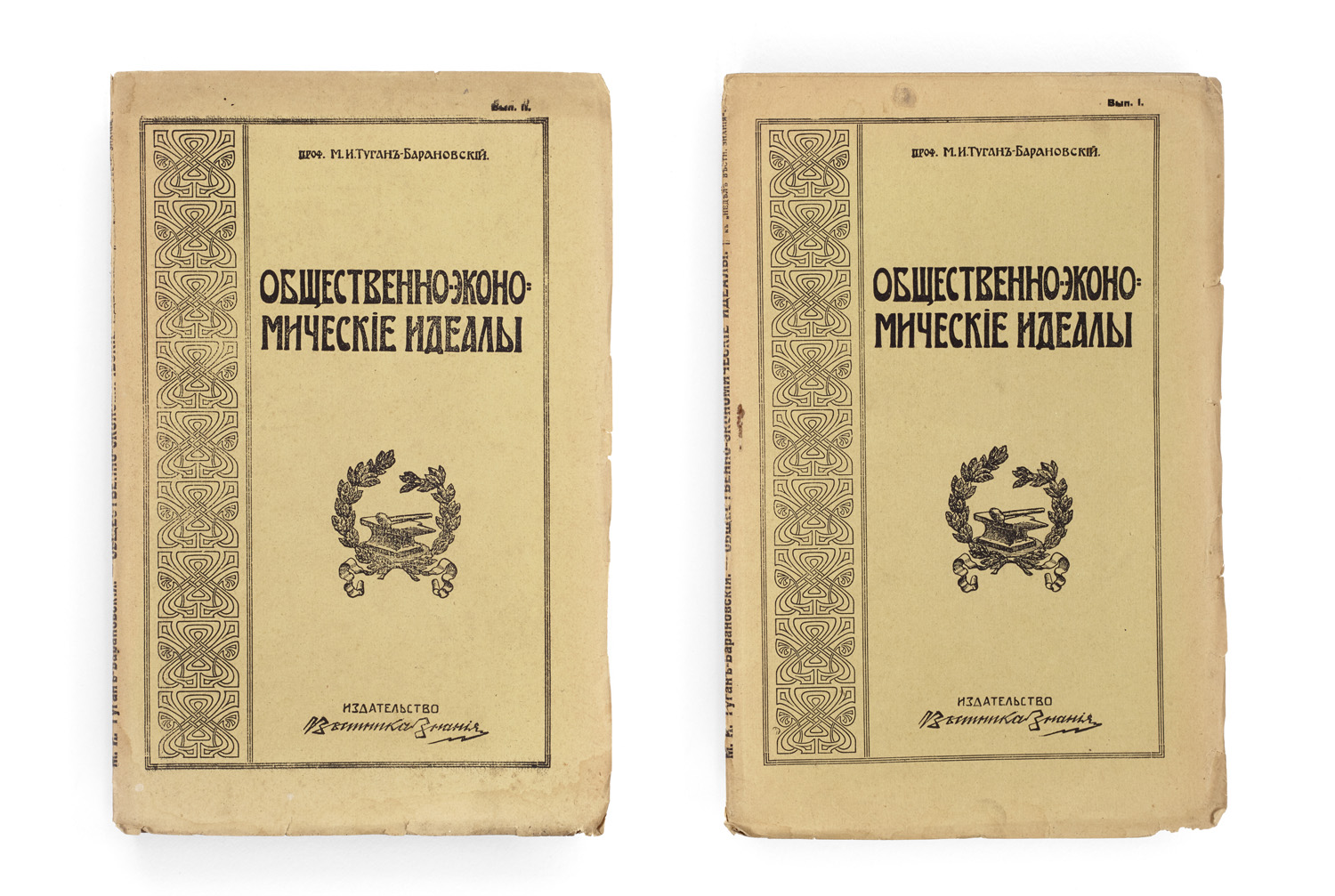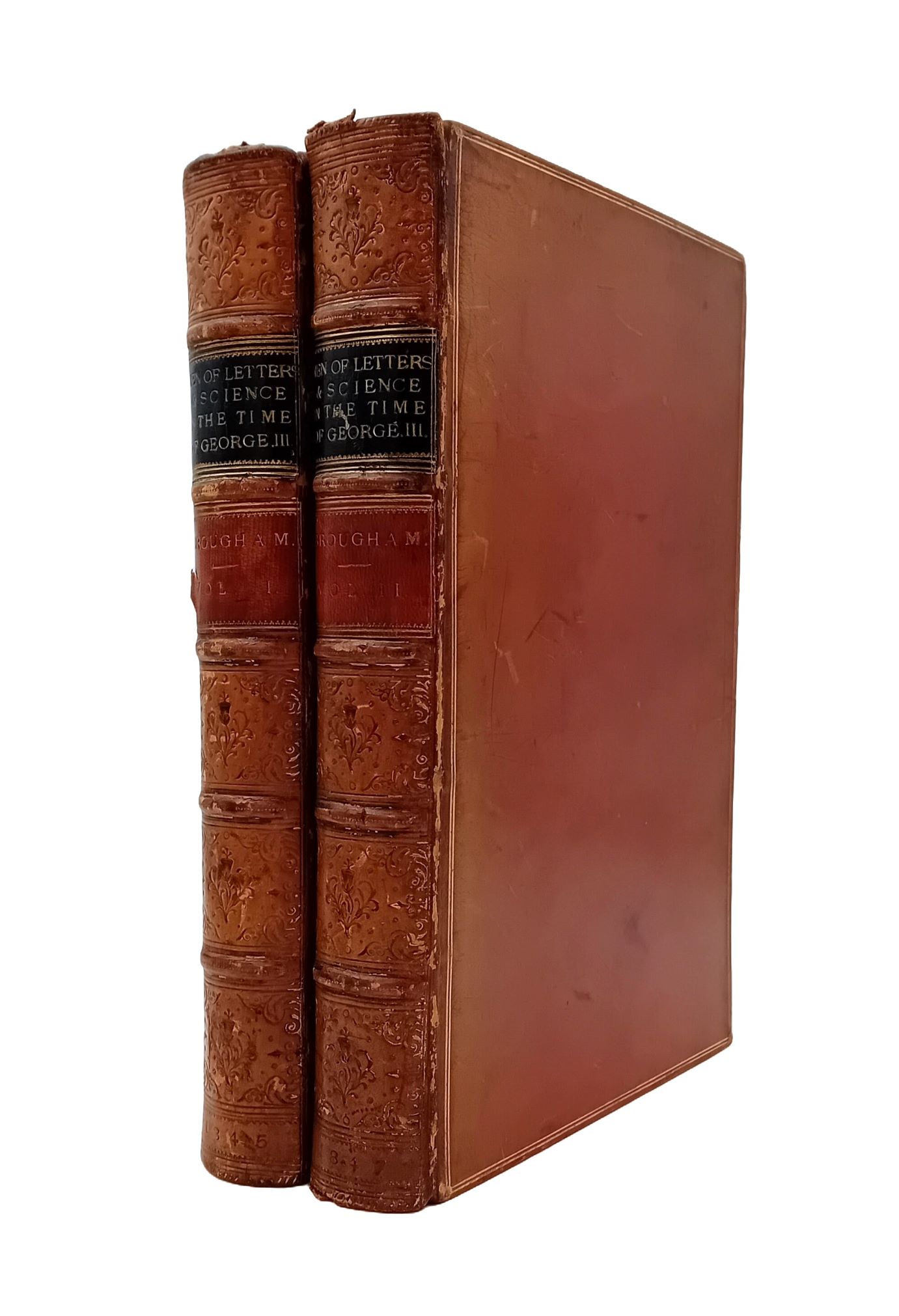
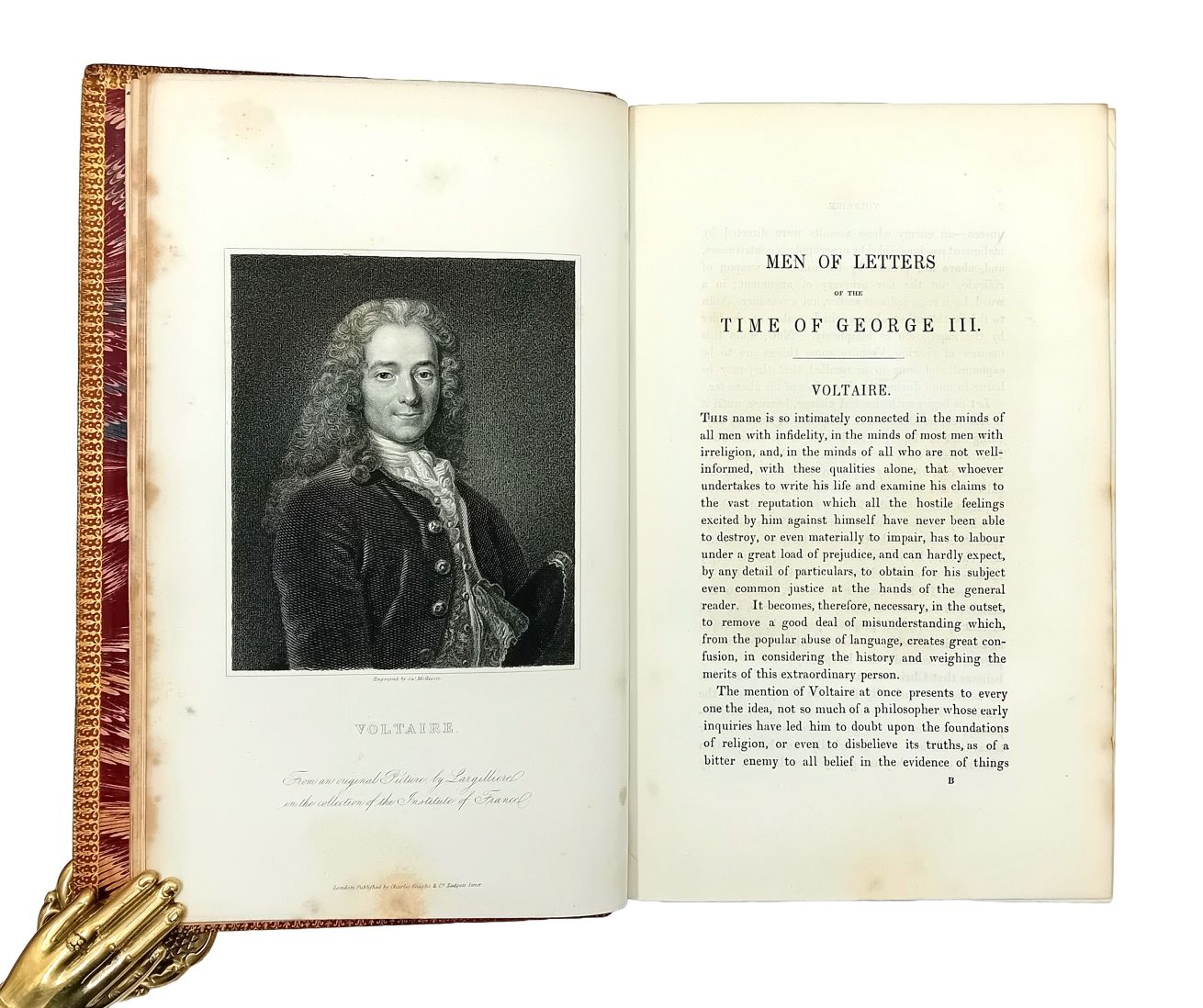
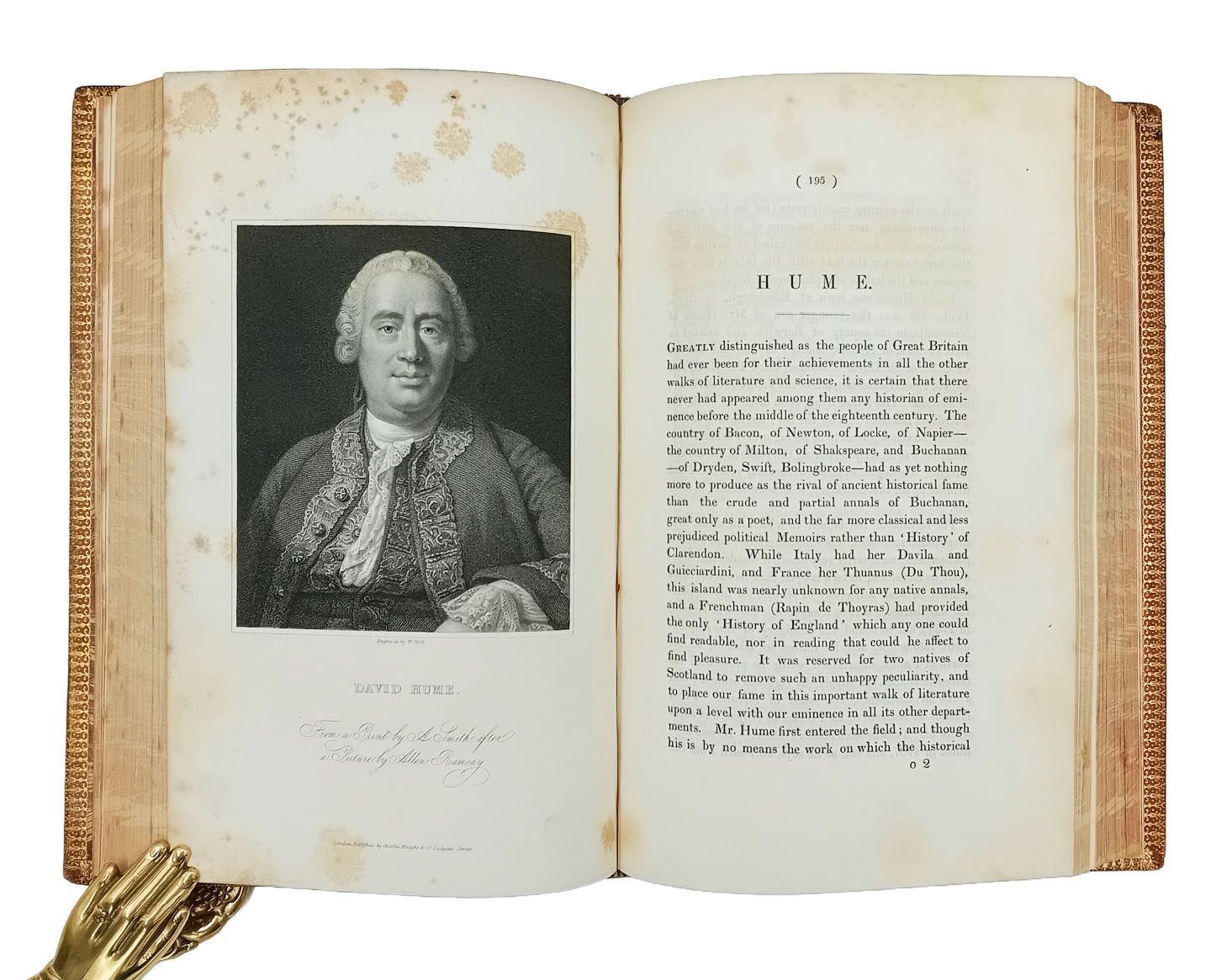
LORD CHANCELLOR’S LIVES FROM THE AGE OF THE FOUNDATION OF ‘POLITICAL ECONOMY’
BROUGHAM, Lord Henry.
Lives of men of letters and science who flourished in the time of George III … with portraits, engraved on steel.
London, Charles Knight and Co., 1845-47.
Two volumes, large 8vo, pp. xv, [1] blank, 516, [1] errata leaf, [1] blank + 8 engraved portraits; xi, [1], 516 + 6 engraved portraits, bound without the half-titles; slight spotting to the front free endpapers and several of the portraits, one leaf creased prior to going through the press (no text loss); a very good copy in contemporary calf, ruled gilt, spines ruled and richly decorated, gilt worn, with contrasting gilt lettering-pieces to spines, dentelles decorated gilt, extremities lightly rubbed; marbled endpapers and all edges marbled; contemporary armorial bookplate to front pastedowns and later bookplate to front free endpaper, newspaper portrait of Brougham pasted to one of the front free endpapers of volume I, a very attractive set.

Added to your basket:
Lives of men of letters and science who flourished in the time of George III … with portraits, engraved on steel.
First edition of the first volume (1845), later edition of the second volume (dated 1847, first published 1846) of Brougham’s lives which includes Voltaire, Hume, Davy, Johnson, and Adam Smith to name a few stars in the firmament of the reign of George III, or, in Brougham’s terms, the ‘Augustan age of modern history’. He entitles it thus primarily because of the development of ‘political science’ during the period: ‘it laid the foundations, and then reared the superstructure. The science of chemistry almost entirely, [and] of political economy entirely, were the growth of this remarkable era’ (I, pp. vii-viii).
Fellow of the Royal Society by the age of twenty-five, politician, Lord Chancellor (1830-34) and liberal reformer, the year before the publication of the first volume of this work Brougham founded the Law Amendment Society, and for ‘thirty years he proposed reforms ranging from the structure of the court system to real property law and the law of marriage and divorce … As a reformer his successes – in law reform, slavery, and education – came when his restless activity and propagandizing were harnessed to the hard work of more obscure men’ (Oxford DNB).
Goldsmiths’ 34062; not in Kress or Mattioli.
